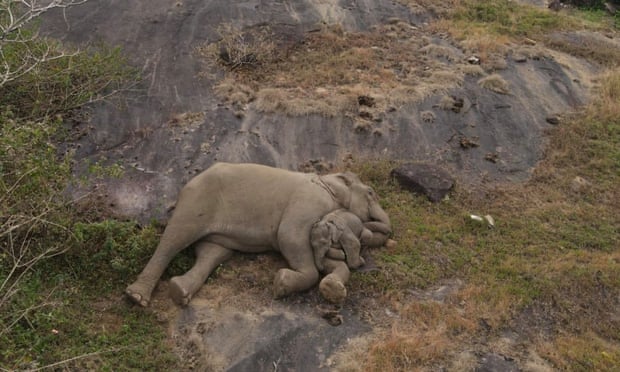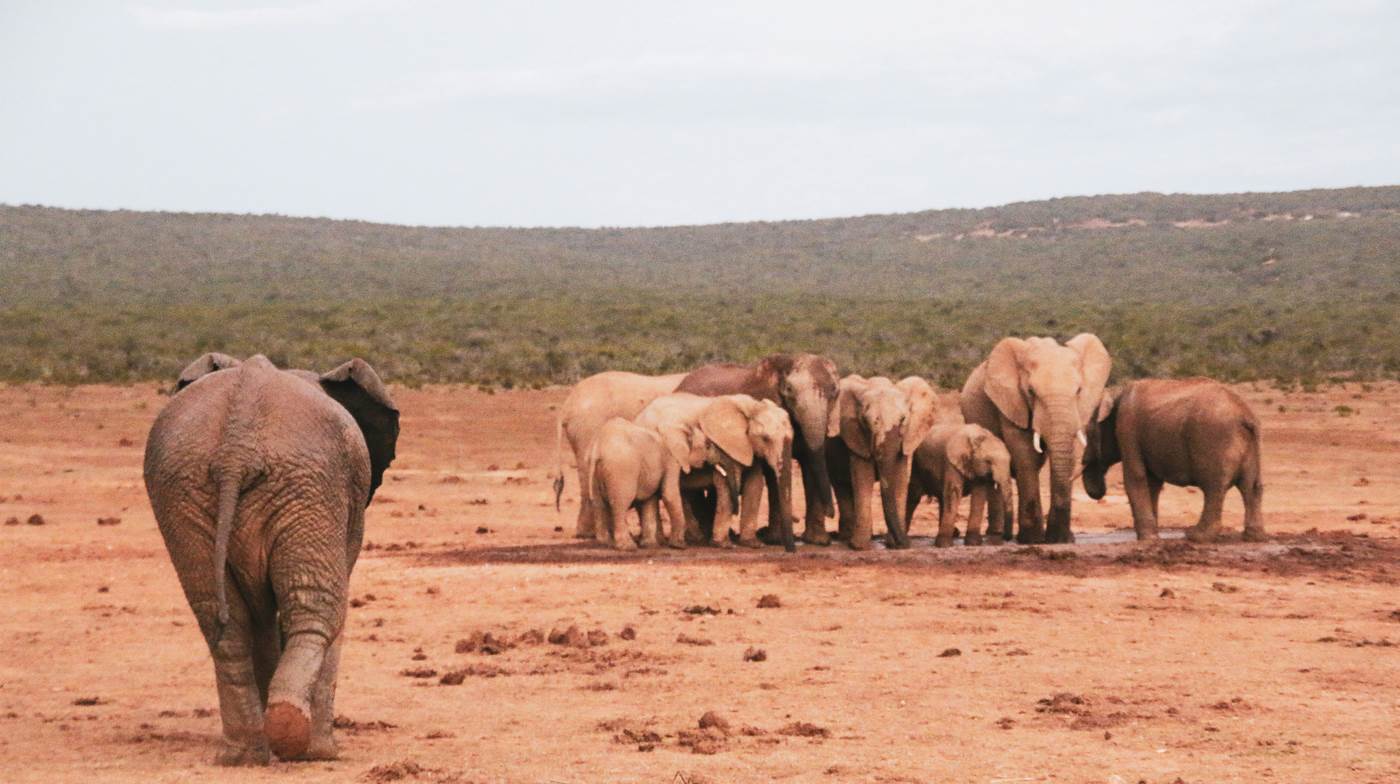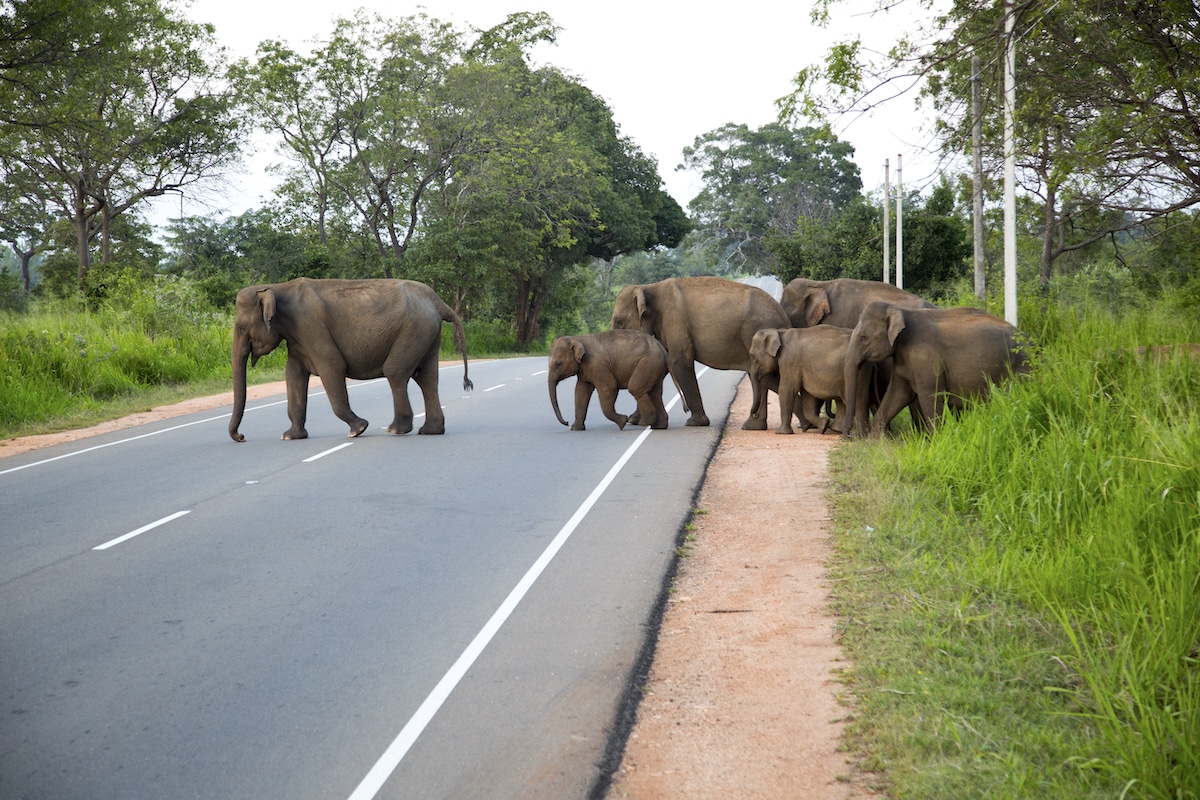In the middle of December 2023, a nine-month-old female elephant calf was the victim of a brutal train accident. This tragic incident was part of a larger Conservation issue in India, where elephant deaths from train collisions are all too common. According to official records, nearly 200 elephants were killed in train collisions between 2010 and 2020, averaging about 20 elephants each year. Fortunately, in this case, the calf was rescued by the Uttarakhand State Forest Department, giving her a second chance at life.

The infant elephant miraculously survived the accident but suffered severe injuries to her spine and hip joints. She was hit by a speeding train while crossing railway tracks near Jim Corbett National Park in Uttarakhand, a state in northern India. After providing medical care for over a month, the state forest department reached out to Wildlife SOS for further assistance. The calf, who was named Bani meaning ‘Mother Earth’, was safely transported to the Wildlife SOS Elephant Hospital Campus in the neighboring state of Uttar Pradesh on February 4. It was here in India’s first elephant hospital where baby Bani began her healing journey under affection, attention, and care.
What does it take to care for a special needs baby elephant?
Upon her arrival, Bani was in a recumbent position, unable to stand due to her injuries. Extensive consultations with both foreign and resident expert doctors, along with multiple X-rays, revealed that Bani was suffering from a neurological condition called trauma-induced spastic paraparesis. This condition caused the paralysis of her hind feet and significant discomfort, in addition to her visible physical wounds. Caring for Bani’s mental needs was also a top priority, given the trauma she had endured. Highly social beings, elephants don’t just need physical care, but also have emotional needs. Keeping this in mind, Wildlife SOS implemented a comprehensive care plan for Bani.
Medical Needs
One of the critical components of Bani’s treatment is regular physiotherapy. She undergoes these sessions daily to improve her muscle strength and mobility. Special attention is given to her hind legs, as they were grievously affected after the train’s impact. Initially, she was lifted into a standing position using a crane-assisted sling, which helped her blood circulation and prevented muscle atrophy. Bani made slow yet significant progress, and now, she can stand without sling Support. These lifting sessions were crucial in helping Bani regain the motivation to stand for longer periods.
Source: Wildlife SOS/YouTube
Laser therapy massage sessions are another crucial part of Bani’s treatment. These sessions help alleviate pain and stimulate muscle function, aiding in her overall recovery. In addition to physiotherapy and laser therapy, Bani also receives fluid therapy intravenously, which includes neural supplements to Support her nervous system. This multifaceted approach is essential for managing spastic paraparesis and providing her relief.
Wildlife SOS is dedicated to providing Bani with innovative medical treatments to help her overcome her paralysis. A unique and beneficial approach in Bani’s care has been the incorporation of traditional Ayurvedic treatments. Her daily routine includes warm oil massages infused with Ayurvedic herbs, which improve blood circulation, reduce muscle stiffness, and provide comfort. To ensure the safety and effectiveness of these treatments, the team collaborates closely with Ayurvedic experts from Kerala.
With continuous efforts, Bani’s strength and mobility have gradually improved and she has been introduced to hydrotherapy as well. The hydrotherapy pool is like a jumbo jacuzzi where Bani can exercise her limbs without the strain of bearing her full weight. This pool therapy has been instrumental in relieving her limb pain and further aiding her rehabilitation.
Source: Wildlife SOS/YouTube
The Wildlife SOS Elephant Hospital is leaving no stone unturned in providing treatment to the baby elephant. Recently, the organization reached out to an acupuncture specialist from Thailand to gain insights on how this can offer comfort to the paralyzed calf. After detailed research, Wildlife SOS’ veterinary team decided to include electro-acupuncture in Bani’s routine treatment regime. This therapy is part of a comprehensive veterinary care program tailored specifically to Bani’s paralysis. Electro-acupuncture therapy harmonizes tradition with technology, using controlled electrical stimulation to modulate neural signaling and restore balance within the body’s energetic pathways.

Feeding Bani
For the first two to four years of life, baby elephants are utterly dependent on their mothers for feeding. After age two, when a calf starts to eat on its own, the mother’s milk continues to remain a critical part of its diet. Eating, incidentally, along with resting and traveling, accounts for most of a young, wild elephant’s day. In the absence of a matriarch, Wildlife SOS has prepared a careful diet regime for Bani, covering a critical aspect of her well-being. Her diet is carefully monitored and adjusted to ensure she receives the necessary nutrients for her growth and recovery.

Bani is given a milk formula prepared at a temperature that mimics that of her mother’s milk, promoting a sense of security within the elephant. The formula includes concentrated cooked porridge made from broken wheat and mung bean along with milk, which supports her nutritional needs and strengthens her immunity. In addition to this, Bani’s milk formula also incorporates medications specific for pain management, bloating, and paralysis, and general health supplements.
Feeding Bani is a meticulous process, and is designed to prevent digestive issues. The milk bottle is positioned perpendicular to her head to avoid bloating and the risk of milk entering her lungs. Her feeding sessions are scheduled for 5-6 times a day, with controlled quantities to avoid overfeeding. As Bani grows, her diet has been gradually adjusted; the milk formula amount is gradually decreasing to include more solid foods such as fodder, vegetables, fruits, and specially prepared rotis (flatbreads) made from ragi or finger millet and wheat flour.
Maintaining top-quality hygiene is paramount in the care of baby elephant Bani, who is over one year old. Caregivers ensure personal hygiene to prevent transmission of germs while feeding equipment is sterilized before and after each use. Milk formula is carefully measured to avoid wastage, and any leftover is disposed of promptly. The nursery is thoroughly cleaned and disinfected, with the paddy straw bedding changed weekly to provide a fresh and healthy environment. These measures safeguard the vulnerable state of young Bani.

To ensure Bani’s health, every progress is closely monitored, and a detailed record-keeping system is in place. This includes tracking her feeding schedule, the quantity of food consumed, medications administered, and daily observations of her behavior and physical condition. These records help the veterinary team make informed decisions about her treatment and care.
Psychological Needs
Bani’s environment also plays a significant role in her recovery. A new nursery was constructed specifically for her, equipped with features that cater to her needs. Dust baths, an essential part of an elephant’s routine, are facilitated within the nursery with the help of mud beds prepared daily by her caregiver. These baths are a natural way for elephants to keep their skin cool and healthy, the familiarity of which provides Bani a certain psychological comfort. Elephants are highly social and emotional animals, and being separated from her protective herd has undoubtedly affected Bani. The caregivers at Wildlife SOS provide constant companionship and emotional Support, helping her feel secure and loved.

For rescued and rehabilitated animals, enrichments offer valuable opportunities for them to express their natural behaviors and develop essential cognitive skills. While several enrichments have been successfully created for adult elephants, designing enrichments for an elephant calf is a new endeavor for Wildlife SOS! The process has been akin to creating interactive toys for kids that not only keep baby Bani entertained but can also stimulate her cognitive abilities.
The team of enrichment specialists at Wildlife SOS recently introduced several enrichments to Bani’s environment that are miniature versions of those that the seniors at our centers engage with. These include four small hay nets filled with fodder, two tiny scratch poles, and a mini tire enrichment. These additions have successfully kept Bani preoccupied and stimulated her curiosity. They also provide excellent exercise for her neck and back muscles. Our skilled veterinarians and caregivers are continuously devising new strategies and innovative ideas for Bani’s enrichment. Engaging with these is sure to boost Bani’s healing, both mentally and physically.
Bani’s caregivers also ensure that she has access to water at all times. A bucket placed inside her nursery motivates her to take multiple mud and water baths that can naturally remove dead skin cells and ectoparasites. Bathing is also an essential playtime for elephants, which is vital for their emotional well-being. Bani enjoys splashing water with her trunk and sometimes even sprays it on her caregivers, showcasing her playful and mischievous nature!
Source: Wildlife SOS/YouTube
Bani’s progress, though slow, has been a source of hope for everyone at Wildlife SOS. Each small improvement is celebrated, and the team is committed to ensuring she leads a life filled with comfort, security, and companionship.
Caring for an elephant calf is a complex and ongoing process that requires meticulous planning and execution. Wildlife SOS encourages individuals to contribute to Bani’s care through adoption programs and donations. These contributions are vital for providing the resources needed for her daily therapy and welfare.
Additionally, signing the petition to urge Indian Railways to reduce speeds in areas frequented by wild animals can help prevent future tragedies and protect other elephants from similar fates.
This article by Aisha Siddiqui for Wildlife SOS was first published by One Green Planet on 19 June 2024. Image Credit :Source: Wildlife SOS.
What you can do
Help to save wildlife by donating as little as $1 – It only takes a minute.








Leave a Reply